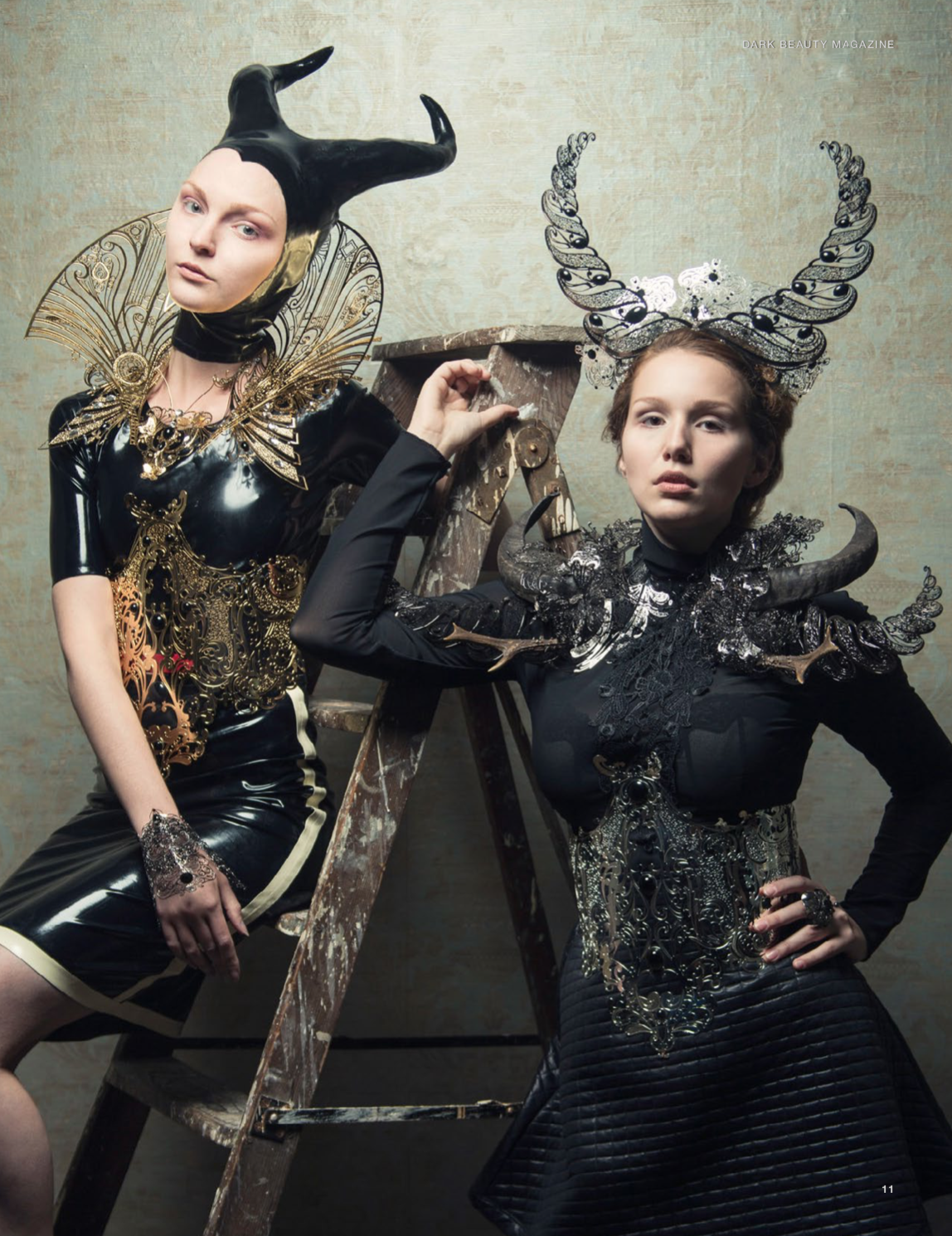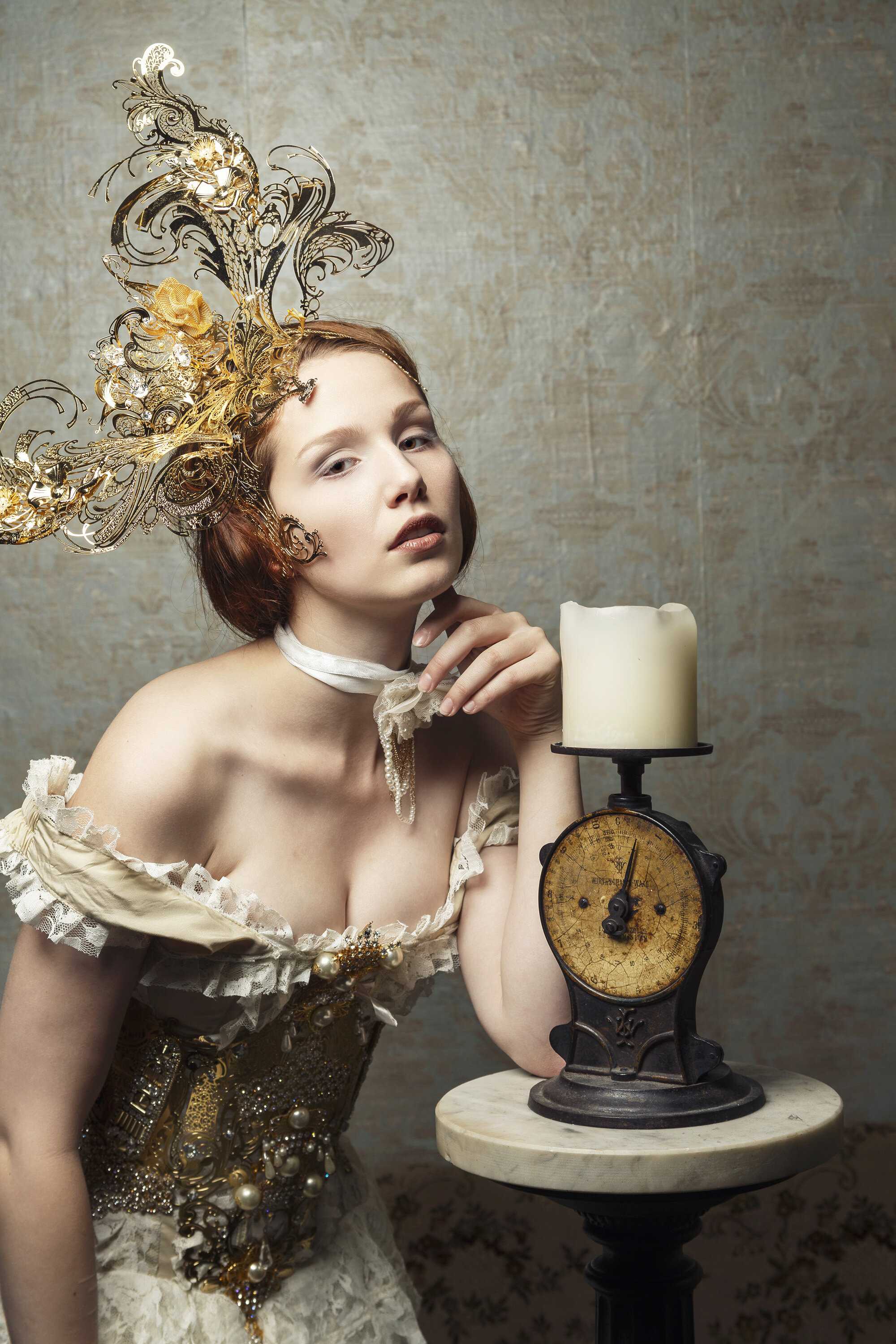Featured in Darkbeauty Magazine
Fashion project “Royal” featured in Darkbeauty as the cover story for March issue.
1. What is your style? Describe it.
In challenging the sharp division between art and design, I'm devoted to bridging the gap between the two, especially exploring the potential utility of an artwork. With my photography, I work to activate the utility and applicability aspects of my artwork in a social context by linking it to a historical back- ground, a social phenomenon, a cultural dilemma, or a political event.
In order to explore the potential with my photography I work with dramatic lights, intense colours, diverse palettes, which over the years of artistic practice became the signature of my photography and my ex- pertise in collaboration.
2. How do you make a living off your work, or do you? Is there someone who supports you?
Sure, my wife is paying for everything, just joking. Over the years I was able to build my own brand with a unique style as a creative photographer. I have different clients who work regu- larly with me aswell. So I depend 100% on my talent in earning a living.
3. What inspires you for a shoot? Why?
I'm often inspired by historical art, literature, social events, personal experiences. A good novel or art could inspire me as well. Art history, people and their stories are rich sources of ideas.
4. Do you plan the entire shoot concept, or have help?
I usually develop the primary idea myself but I might end up brainstorming with some friends or colleagues to get another approach to the idea I want to execute.
5. Who do you look up to in the industry? Why?
I like Mark Seliger because his ideas goes under your skin, they are not just celebrity por- traits , they have more to tell about those artists. Two of my favourite pioneers are Henri Cartier Bresson and Ansel Adams, their photographs are timeless and no matter how much I could say about them, it wouldn ́t be enough to describe how magnificent their work are.
6. How do you take criticism? DO you take it well? How do you manage criticism? Why does it effect you good/negative?
I find learning to deal with criticism is an important process that goes hand in hand with de- veloping to an advanced level of photography. In some case it could disappoint me or make me unmotivated for a little while, but if it's an honest criticism then it's important for me to lis- ten to it to learn how others judge and see my work. In some other cases I would just ne- glect a speci fic kind of criticism as it might be irrelevant to my style and my target. So to be able to take criticism the photographer should have a fair share of confidence about his work and craftmanship with a clear understanding of his targets and intentions.
7. Are you self taught, educate? College, online classes, tutorials, Self Taught? What steps did you take to learn your craft?
My father tought me some photography as a child, then I learned more during my 5 years of- studies in advertising, publishing and printing at the faculty of applied arts. For me finishing university studies was just the beginning to gain my practical experience and develop my- self. I read a lot and have mastered other techniques by doing or from tutorials.
8. Who would you like to shoot? Celebrities, model, designer? Why?
Jonny Depp, Brad Pitt, Morgan Freeman, George Clooney, Angelina Jolie, Obama, because all of them are good actors. Rolling Stones, Paul McCartney, Queen Elisabeth, Yul Brynner, John Lennon and Marlon Brando because they are legendary except that some of them are already dead.
9. If you left a time capsule of your work, what would you leave in it? Would it be digital or physical paper? What would it consist?
I'm not sure if we would still be able to read the digital data from today after 100 years. With the rate of speed at which technology develops I simply doubt it, therefore I may just leave some prints of my favourite works and notes along with the usb sticks and the hard drives that I will burry.
10. What caused you to become a photographer? Why?
Maybe it was my fate. Shortly before I finished my university studies I started to get more in- volved in photography. I was very good in drawing, painting and illustrating, so I mainly wanted to work with my own hands, however at the time people were more obsessed about the mighty Photoshop, so to start as an illustrator was not that easy. The only chance was to work with comics but it was never my thing. Thus I decided to turn my back on illustration and keep going with photography.
11. Do you prefer to shoot men, women models? Why is your preference for one and not the other?
It doesn't matter much to me, I mostly photograph women, but there are other jobs where I shoot men. If its a free project then it would depend on the idea and concept of the shooting.
12. Do you edit your own work? If so, explain why.
I do, sometimes it's hard to tell someone else how exactly I imagine the final result so it is time-saving in that case.
13. What did you want to be when you were little? Why?
I wanted to be a psychologist as I found the subject really interesting, then I wanted to be a secret agent because I found it exciting and mysterious at some stage but in the end it worked out to get a normal job.
14. When do you know your image is done when editing?
What gives you that indication? If I cannot stop looking at the image then its done for me, its a certain feeling that is hard to describe.
15. Are you hands on, or prefer to let the artist/team you invite to work on a shoot? Do you take input, or is it all your way or the highway? Why?
I believe in team work and don't feel uncomfortable working with creative people because it adds something to the final result. Brainstorming and spontaneity during the shooting is vital and adds a lot to the final result. Some of the best works I've done were a result of a homogeneous team work.
“Sometimes it ́s good to miss success, so that I put more effort into gaining more success.”
16. How do you manage requests for free or TFP shoots? Why do/don’t you?
I don't accept TFP shooting offers because mostly the idea or execution is not interesting or professional enough to me or I don't get the feeling that the time I'm investing in the shoot will give me the perfect result. I prefer working on my own creative ideas and cooperate with other creatives if it's essential for the project.
18. What was your favorite shoot? Why?
I can't name a single shoot as my favourite but I could name my last project Eve's Glory which consisted of 12 shootings with more than 40 models. This project won the Graphis gold photography award in New York and another young talent prize in Bildsprachen Photo Forum in Gelsenkirchen, Germany. I'm going to do a crowdfunding to produce a book of this project as a part of a charity action, and a share of it's profit will go to women who lost their men or/and had to escape from their countries because of war and are currently living in refugee camps. More information about the crowd funding is available on my website.
19. What is successful for you, in attracting work? Social networking, website, emails? Why?
Being a photographer without having a website is a no go, its the photographer's business card on the web. Recommendations from clients to others works brilliant most of the time. Social activities and prizes makes a photographer stand out.
20. What is your idea of success? Why?
Success is accomplishment for achievements and long hard work, but there is no absolute or permanent success as long as the photographer is still creating. It ́s a mixture between disappointment and achievement like heartbeats, success tastes good if I work hard to get it. Sometimes it ́s good to miss success, so that I put more effort into gaining more success.
21. Have you reached your ultimate level in your work? If not, what is your next step? Why?
Surely not, I'm a very ambitious person and I think I still have a lot on my list that I want to achieve. As soon as I reach a target or a level I set a higher target and work on reaching the next level.
“I would like to be
remembered for my work because I see it as an immortal piece of me“
22. Where do you see yourself in 10 years? Explain.
In 10 years my work will have a higher quality than now and it will be more complex than to- day. I will definitely be having more social photographic projects. I will be working with bigger teams for bigger productions. I might be teaching photography at a university meanwhile and having fully booked seminars. I might be living in London, Zurich or New York in 10 years.
23. If you could go back into time, what era would it be and why? what career would you want to have experienced and why?
I would like to live in the 19th Century and I would most probably be a painter or an architect because I'm deeply interested in the lifestyle and art of this era. I rather prefer old houses with huge old furniture than a modern house with small rooms, white walls and 2,5 meter ceilings.
24. Do you prefer paper to digital? Why is it important to you?
Each medium has its own taste and application to me. So comparing the two doesn't make sense to me. Sometimes I prefer to print photos cause it's easier to make a final selection from prints instead of digital. My portfolio is also in print, it gives the client a good impression.
25. Do you feel valued as an artist/photographer/designer? If you do/don’t, why?
I do feel valued as a photographer and I get a lot of compliments and questions about my work and style every day. My exhibitions are usually well visited by people who appreciate what I'm doing and support me to keep going my path. That's a gift to feel loved as an artist from people you never met before.
26. What would you like to see change in the industry? Can you change it? Motivate? Have ideas? Why?
There are a lot of things that should change in the industry, the stereotype of the ideal wom- an, the strong use of photoshop, I'm not a fan of the so-called “sex sells” artwork.
27. What do you want to be remembered for? History, fame, work? Why?
Work makes history and fame, but I would like to be remembered for my work because I see it as an immortal piece of me.






